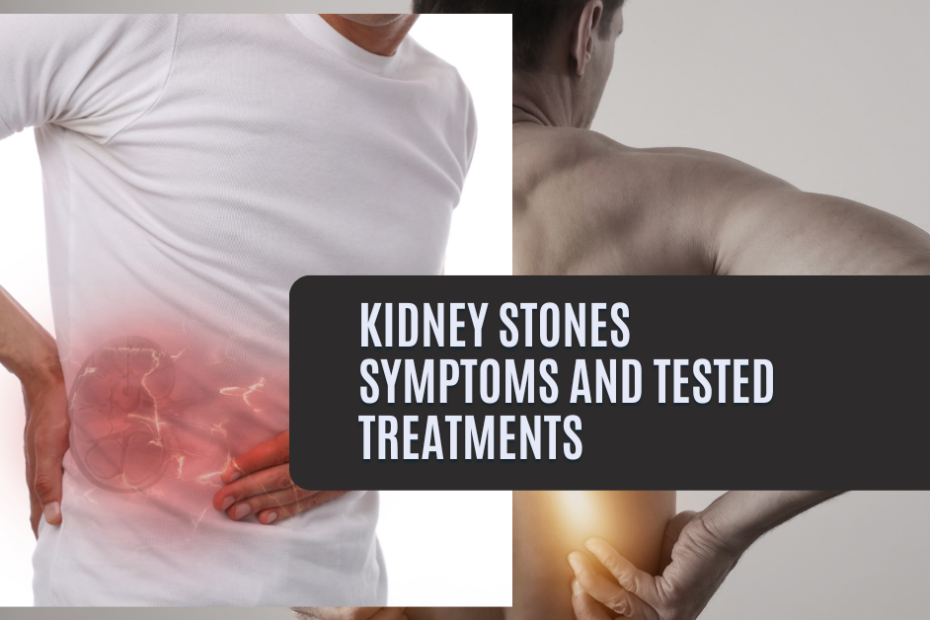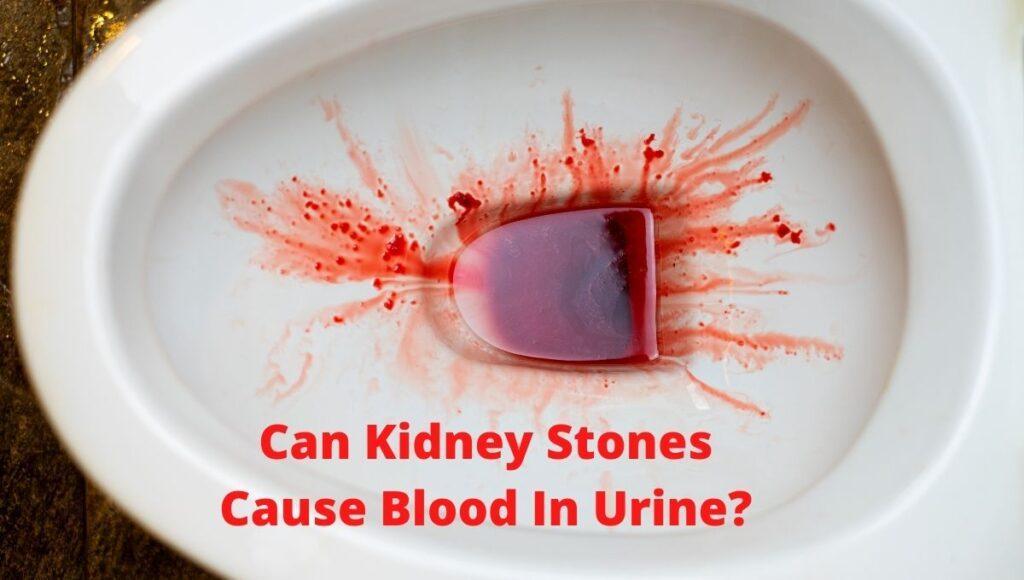Have you ever experienced sudden, sharp pain in your side or lower back? This could be a signs of a kidney stone. Kidney stones are hard deposits that form when minerals and salts crystallize inside the kidneys. They can cause severe discomfort, often described as excruciating waves of pain radiating from the lower back to the abdomen.
-
Signs of a Kidney Stone - Early Symptoms
- What Causes Kidney Stones?
- Signs of a Kidney Stone - Best Way To Treat
- Questions and Answers
- Surgery for Kidney Stones
- Can Kidney Stones Cause Blood In Urine?
- Can Kidney Stones Cause Gastrointestinal Problems?
- Signs of a Kidney Stone? - The answer: Oxalate Diet
- What Are The Benefits Of An Oxalte Diet?
- Source & Credits:
Other signs of a kidney stone include nausea, blood in the urine, frequent urges to urinate, and pain during urination. These symptoms should never be ignored, as untreated rocks may lead to infection, kidney damage, or even kidney failure.
Prevention is key. Staying well-hydrated, reducing excess salt and caffeine intake, exercising regularly, and maintaining a balanced diet with adequate magnesium can significantly lower your risk. Recognizing the early signs of a kidney stone helps ensure timely medical care and better outcomes.
Signs of a Kidney Stone – Early Symptoms
- Pain in the lower back, flank, groin, or upper abdomen.
- Nausea, vomiting, fever, chills, blood in urine, or decreased urination.
- Weight gain, fatigue, anemia, muscle cramps, or leg swelling.
- Urine that is dark yellow or brownish red.
- Burning sensation while urinating
What Causes Kidney Stones?
Kidney stones form when minerals in urine crystallize into hard deposits that block the flow of urine out of the kidneys.
The most common cause is too much calcium in the diet. Other risk factors include dehydration, certain medications, and genetics.
According to WebMD.com, Kidney stones (KS) are complex stone-like objects that can develop within your kidneys. They’re made of minerals and salts, and they may cause pain. Your doctor may refer to them as renal calculi or recommend surgery to remove kidney stones.
Kidney stones are small, typically about the size of a kernel or a grain of salt. Some people get them more often than others. They can be brown or yellow and smooth or rough.
It is a solid material that forms in the kidney when substances usually found in the urine become highly concentrated. KS is caused by high levels of calcium, oxalate, and phosphorus in the urine.
Signs of a Kidney Stone - Best Way To Treat
The best way to prevent kidney stones is to make sure you drink plenty of water to avoid dehydration. It is crucial to keep urine diluted to prevent waste from forming into kidney stones.
Add lemon to your water! This is the traditional natural remedy associated with the right kidney. While lemon water is often touted as a cleansing or alkaline drink, the primary reason it is beneficial in reducing stone formation is its high citric acid content. Citric acid prevents the formation of stones and breaks even small rocks that are starting to form.
The more citric acid in the urine, the more you are protected against the formation of new kidney stones.
- Citric acid makes urine less conducive to stone formation.
- It prevents small stones from becoming stones-problem by coating them and blocking other materials from sticking to the rocks.
Questions and Answers
Surgery for Kidney Stones
A urologist can remove the kidney stone or break it into small pieces with the following treatments: Shock wave lithotripsy. The doctor can use a shock wave lithotripsy link to blast the kidney stone into small pieces. The smaller pieces of the kidney stone then pass through your urinary tract
Can Kidney Stones Cause Blood In Urine?
Kidney stones are painful and dangerous, but they don’t always cause blood in the urine. What causes blood in urine?
Blood in the urine is usually caused by kidney problems or bladder infections. If you experience bloody urine, call your doctor immediately.
Blood in the urine can also occur due to other conditions such as urinary tract infection (UTI), diabetes, high cholesterol, liver disease, cancer, pregnancy, and certain medications.
Can Kidney Stones Cause Gastrointestinal Problems?
Yes, kidney stones can sometimes cause gastrointestinal issues in addition to urinary symptoms. Because the urinary tract and digestive system share nerve pathways, discomfort from a stone may radiate to the stomach, creating unsettling gastrointestinal symptoms. Common signs of a kidney stone that overlap with digestive issues include persistent nausea, repeated vomiting, and stomach discomfort that doesn’t resolve with rest or over-the-counter remedies.
The pressure and irritation caused by a kidney stone can mimic other abdominal problems, making it difficult to distinguish the source of pain without medical evaluation. In some cases, signs of a kidney stone can even be mistaken for gastrointestinal disorders like gastritis, indigestion, or ulcers. If nausea, abdominal pain, or vomiting occur alongside urinary symptoms such as painful urination or blood in the urine, these could be additional signs of a kidney stone, requiring prompt medical attention.
Signs of a Kidney Stone? – The answer: Oxalate Diet
An oxalate diet is a dietary approach that involves limiting foods high in oxalates, which are natural compounds found in many plant-based foods. Oxalates can bind with calcium in the body and form crystals, which can lead to kidney stones —a painful condition that can cause long-term damage to the kidneys.
What Are The Benefits Of An Oxalte Diet?
The benefits of an oxalate diet include reducing the risk of kidney stone formation and potentially improving symptoms for people with certain conditions, such as hyperoxaluria or calcium oxalate kidney stones.
However, it is essential to note that not all kidney stones are caused by high oxalate intake, and an oxalate diet may not be appropriate for everyone. It is recommended to consult with a healthcare professional or registered dietitian before making significant dietary changes.
Source & Credits:
https://www.mayoclinic.org/diseases-conditions/kidney-stones/symptoms-causes/syc-20355755
https://www.medicalnewstoday.com/articles/symptoms-of-kidney-stones
https://health.clevelandclinic.org/kidney-stone-signs/
Struggling with Weight Gain or Loss? Could It Be Your Thyroid?
Understanding and addressing thyroid health is crucial for achieving and maintaining a balanced weight.
Click HereFeeling Tired All the Time? Your Thyroid Might Be to Blame
Recognizing that fatigue often stems from unnoticed thyroid issues, we empower individuals to take charge of their health.
Click Here

While some kidney stones pass on their own, others require treatment such as medications or procedures to help break up the stone or even surgical removal
I’ve experienced some of these symptoms before and never realized they could be related to kidney stones. This post is a great reminder to pay attention to our bodies and not ignore any unusual discomfort.
Oh, that sounds really painful! Kidney stones can be so debilitating. I hope you feel better soon. Have you tried any home remedies or over-the-counter pain relievers to manage the symptoms?
Kidney stone pain is like nothing else. It’s a level of agony
Just got back from the ER. The pain from kidney stones is unlike anything I’ve ever experienced. It comes in waves, but when it hits, it’s absolutely debilitating